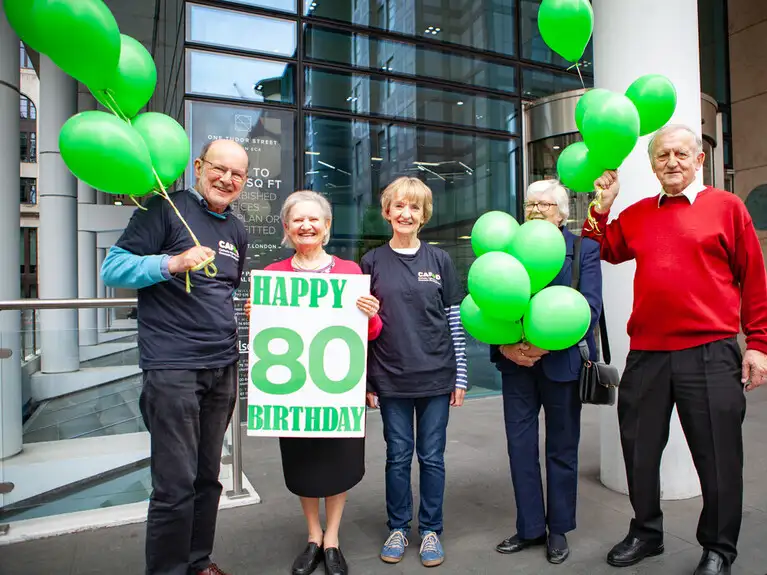Fix the food system
The global food system is broken. It doesn’t work for those who work the hardest – small farmers – and it’s a major driver of the climate emergency.


80 year old CAFOD supporters take a message to the World Bank
July 2024 marks 80 years since the founding of the World Bank, with its stated mission to bring prosperity to the world’s poorest communities. But eight decades since its inception, has the Bank learnt from past mistakes and evolved to deliver on its mission, or simply become stuck in its ways?
Despite having committed to a programme of change in the form of its ‘Evolution Roadmap’ under the leadership of President Ajay Banga, many of the same mistakes continue to be made. Just a few weeks ago, one of CAFOD’s sister organisations, Caritas Zambia, shared its concern about the World Bank’s involvement in a push to change Zambian legislation. Over-stepping its role as a financing institution, the Bank is undermining Zambian sovereignty by demanding the passing of a new Plant Breeders’ Rights Act and Plant Variety and Seeds Act. Not only could this potentially threaten the fundamental rights of Zambian farmers, but it could also put Zambia in breach of international law.
Agriculture is a sector in which the Bank’s approach continues to make life harder for small-scale farmers in low-income countries, at the expense of both food security and the environment. Across Africa, Asia, and Latin America, farmers have traditionally used, stored and shared a wide variety of seeds that grow best in local conditions. Yet, the World Bank puts conditions on loans to some low-income countries for agriculture projects which lock farmers into using specific commercial seeds and fertilisers. This includes restrictive seed laws and regulations which make it difficult – and in some cases illegal – for farmers to save or sell their own seed varieties.
CAFOD’s report, Sowing the seeds of poverty: How the World Bank harms poor farmers, illustrates how the Bank’s support for seed privatisation has affected small-scale farmers in Nigeria, Ghana, Liberia and Sierra Leone, forcing them into dependency on costly, commercial seeds. Instead of supporting community-level activities, the World Bank has consistently supported industrial agribusiness companies that want small-scale farmers in low-income countries to buy their hybrid seeds and fertilizers. This is despite concerns from farmers who are struggling to make ends meet and cannot afford to purchase expensive seeds.
The World Bank has employed similar approaches in low-income countries without considering their unique needs, and this is hurting efforts to fight climate change, which these countries are barely responsible for. Small-scale farmers have shown that by keeping their own seed banks, they can adapt to changing conditions, because they've had to.
According to Salina, a small-scale farmer and seed saver in Bangladesh, neighbours who have become dependent on the agribusiness seeds face devasting consequences when climate events hit. “When there is heavy rain,” she said, “the chemical farmers who bought seeds from outside don’t have any options… They have already spent their money and cannot buy new ones [seeds]. Seeds should be in the farmer’s house, so there is always a backup… If one crop is damaged, another crop will survive.”
After 80 years, it is time the World Bank ended policies that have consistently undermined small scale farmers like Salina who produce a third of the world’s food. She, and small-scale farmers like her, should be guaranteed seed sovereignty, which means the right of farmers to save, use, exchange, and sell their own seeds. If this does not happen, the World Bank risks perpetuating poverty and environmental degradation.
Public funds should no longer only support industrial agriculture, which relies on commercial seeds and chemical fertilizers. Instead, they should also be supporting sustainable and resilient farmer managed food systems. This means changing policies to support seed diversity and farmers' own seed practices and focusing on community-based approaches.
As the Bank celebrates this historic milestone, let us hope it begins to take the side of those who need its help most.
The global food system is broken. It doesn’t work for those who work the hardest – small farmers – and it’s a major driver of the climate emergency.
Pray with us for a fairer global food system where everyone has enough.